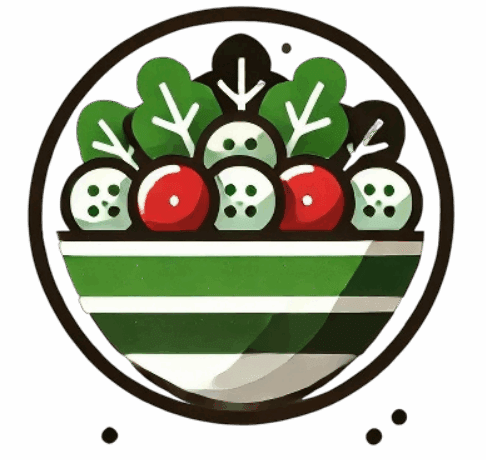When we talk about vitamin C , you probably already remember that classic advice: bet on citrus fruits to strengthen your immunity and keep colds at bay.
This advice is absolutely right, as this type of fruit is rich in vitamin C, which plays a huge role when it comes to taking care of our immune system.
But the action of this vitamin in the body goes far beyond that. If you are one of those people who thinks about their health, takes care of their diet and keeps an eye on essential vitamins and minerals, you will be surprised at how much it can contribute to your well-being!
What is vitamin C?
Vitamin C, or ascorbic acid , is one of the most popular nutrients in the world of food and supplementation. It is an essential water- soluble vitamin , that is, it is a micronutrient that is soluble in water (it does not need fat to be absorbed by the body).
Our body is not capable of synthesizing or storing this vitamin, therefore, it is essential that it is ingested through food or, if necessary and recommended by a doctor or nutritionist, through supplementation.
It is important to consume the amount of vitamin C that is adequate for your body, as excess micronutrients are eliminated through urine.
What is vitamin C for?
Vitamin C helps the skin, is a powerful antioxidant, contributes to the absorption of iron and, of course, is especially important for strengthening the immune system. 2 And having your immunity up to date means being better prepared to face the challenges of your routine, for example, being ready for crazy changes in temperature or for that extra-busy week at work.
Let’s understand each of these functions of vitamin C.
How does vitamin C strengthen the immune system?
Vitamin C can support several cellular functions of the innate and adaptive immune systems ( understand the difference between them and the types of immunity ). It also helps strengthen the body’s natural barriers – such as the skin – against germs and harmful agents.
Within defense cells, such as neutrophils, this vitamin increases their ability to “hunt” and destroy microorganisms. Furthermore, it facilitates the removal of dead defense cells, preventing tissue damage.
It also boosts the production of immune cells called B and T cells, which are important in fighting infections. If the body lacks vitamin C, the immune system becomes weaker and the risk of getting sick increases.
Antioxidant action of vitamin C
When detailing what vitamin C is for, we cannot fail to mention its antioxidant action . This means that it acts by neutralizing free radicals , that is, unstable molecules that can cause damage to the body’s cells.
Remember that we mentioned that this vitamin is water-soluble? 3 Well, it seeks out free radicals that are in an aqueous medium in our body, such as those found inside cells, to combat them.
Speaking of which, vitamin C works very well together with vitamin E to perform this antioxidant function.
All of this is important to support the immune system and to protect the skin , other tissues and mucous membranes from environmental toxins and to prevent oxidative stress, which is when there are more free radicals in the body than the antioxidants can combat.
Vitamin C and iron absorption
We have one more item on the list of what vitamin C is for. It is important for the absorption of non-heme iron, that which comes from plant sources. If you are a fan of a diet rich in vegetables and grains, combining these foods with sources of vitamin C can considerably improve iron absorption and prevent anemia.
Other functions in the body
This vitamin also:
- It is essential for the synthesis of collagen , L-carnitine and even some neurotransmitters;
- participates in protein metabolism.
Sources of vitamin C
It is worth mentioning that the necessary amounts of this vitamin, as with any other nutrient or essential vitamin , can vary from person to person, depending on factors such as age, pregnancy and even whether or not the person is a smoker. In general, the daily recommendation for adults is around 75 mg for women and 90 mg for men.
Next, find out where to find vitamin C.
Foods rich in vitamin C
Positive point here! This vitamin is present in several delicious foods that are easy to include in your diet.
See below for some of the best sources of vitamin C.
- Acerola : champion, with about 941.4 mg of vitamin C per 100 g.
- Guava : white guava provides approximately 99.2 mg of vitamin C per 100 g, while red guava provides 80.6 mg.
- Red bell pepper : in addition to giving that crunchy touch to the salad, it has about 190 mg of vitamin C per 100 g.
- Kiwi : small but efficient, has 70.8 mg of vitamin C per 100 g.
- Strawberries : contain 63.6 mg of vitamin C per 100 g.
- Orange : the classic, with 53.7 mg per 100 g.
- Broccoli : 42 mg per 100 g of cooked broccoli, it is an excellent source for those who prefer to ensure vitamin C in vegetables.
- Kale : 96.7 mg of vitamin C per 100 g – yet another reason to add raw kale to your juice.
It is best to consume foods rich in vitamin C in their natural state . Remember that this vitamin can be destroyed by heat and light. If you choose to drink fruit juice, for example, choose homemade juices and drink them immediately after preparation to make the most of the vitamin C. And be careful when preparing food, as high cooking temperatures or prolonged cooking times can degrade the vitamin.

